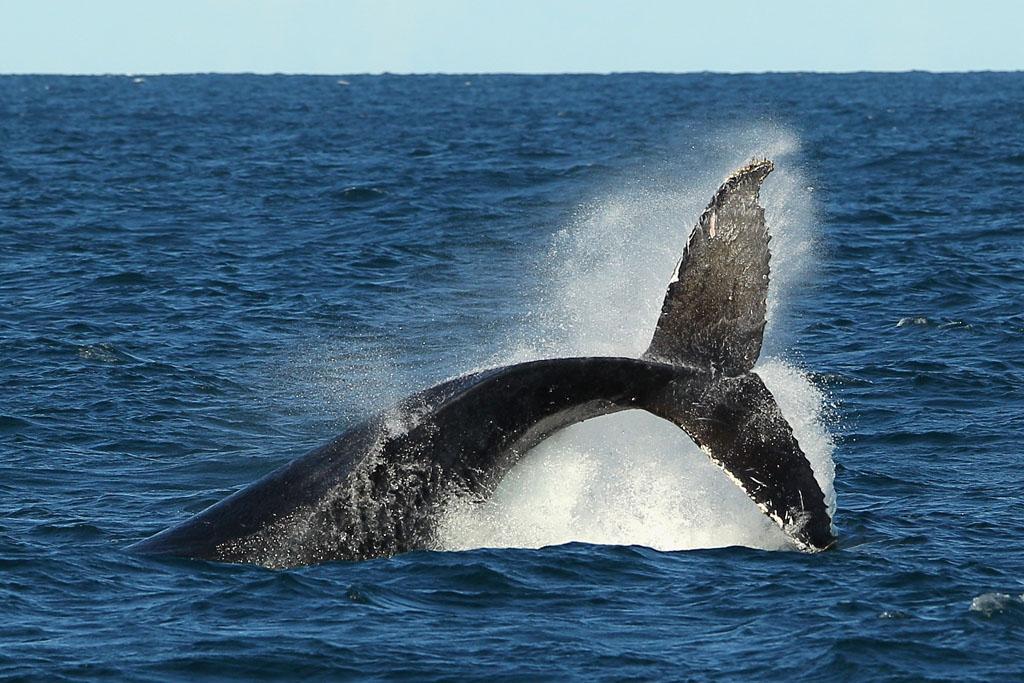Whale meat comes between Australia and Japan (VIDEO)
A humpback whale tail breaches off Sydney Heads on June 23, 2011 in Sydney, Australia.
TOKYO, Japan — The annual battle between the Japanese whaling fleet and campaigners has started earlier than usual this year, and again threatens to sour
ties between two regional partners.
The latest confrontation happened on Sunday when three Australian activists with links to Sea Shepherd marine conservation society boarded the Shonan Maru 2, a former whaling vessel that now provides security to the whalers.
The trio boarded the boat under cover of darkness while the ship was sailing in waters off western Australia.
The men, who belong to the Australia-based environmentalist group Forest Rescue, were carrying a message demanding that they be taken ashore and that the fleet leave the South ocean whale sanctuary.
More from GlobalPost: Japan's whale meat obsession
Neither course of action appeared likely on Monday, as the incident threatened to cause a rift between Australia and Japan, which have close trade and security ties.
The incident could also prove a legal minefield. Australia's attorney general, Nicola Roxon, said the boarding took place outside the country's territorial water — a claim dismissed by Sea Shepherd's founder, Paul Watson.
Speaking from the group's ship the Steve Irwin, Watson told Sky New Australia that the GPS unit aboard the Shonan Maru 2 would prove it was well inside Australian waters. "I think this is more about appeasing Japan than it is about representing the interests of three Australian citizens," he said.
Roxon said representations had been made to the Japanese government in an attempt to secure the activists' release.
More from GlobalPost: Tsunami relief funds whale hunt
The Institute for Cetacean Research in Tokyo said the men were uninjured and being looked after, while Australian media said they had gone on hunger strike.
Fears are growing that they could meet the same fate as Peter Bethune, a Sea Shepherd activist who was given a suspended prison sentence by a Tokyo court in
2010 after he boarded a whaling vessel earlier that year.
The latest incident took place as activists continued their search for the fleet's mother ship. The whalers plan to catch about 1,000 whales this season for what they call "scientific research."
The World is an independent newsroom. We’re not funded by billionaires; instead, we rely on readers and listeners like you. As a listener, you’re a crucial part of our team and our global community. Your support is vital to running our nonprofit newsroom, and we can’t do this work without you. Will you support The World with a gift today? Donations made between now and Dec. 31 will be matched 1:1. Thanks for investing in our work!
